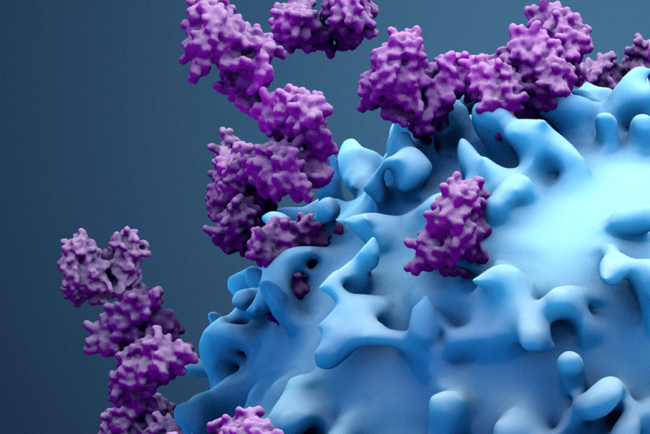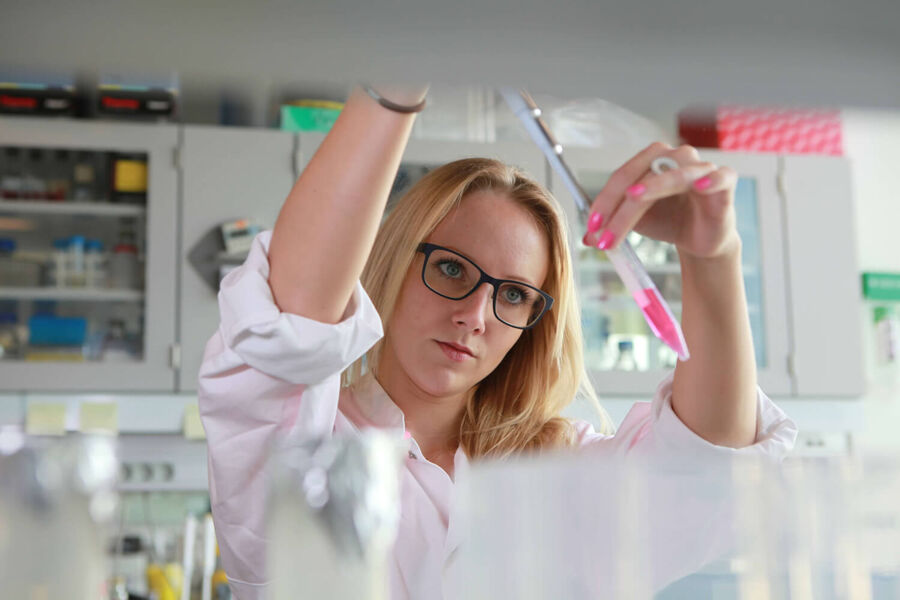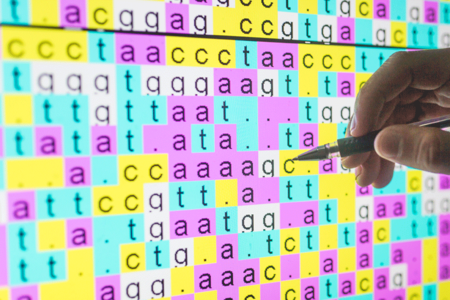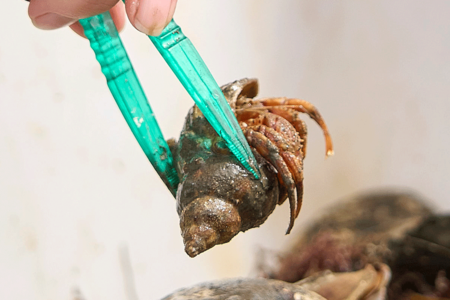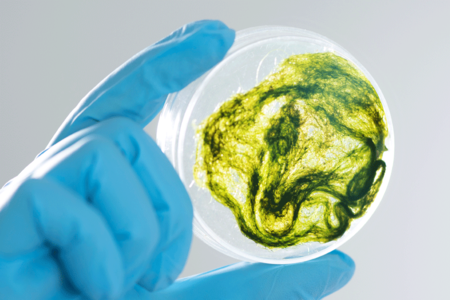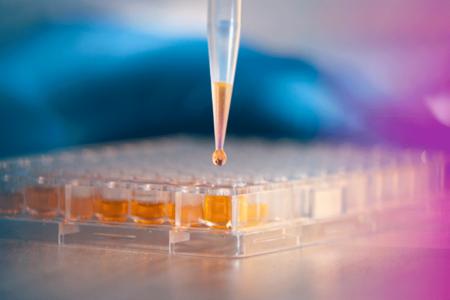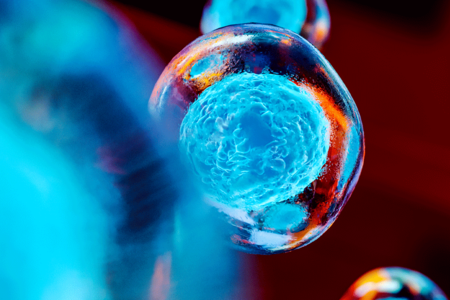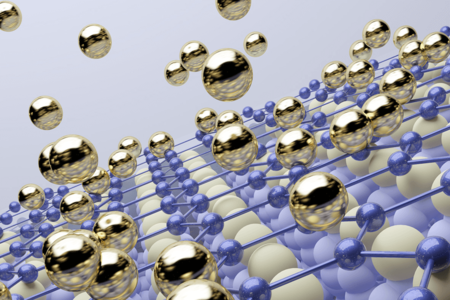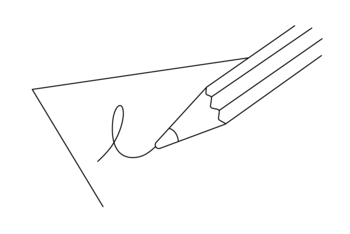Why did you choose to study Biochemistry?
It was a natural continuation of my bachelor’s degree in Biochemistry. After studying Biochemistry for a year, I wondered if I should switch to Chemistry instead. But I decided in favour of Biochemistry, because it allowed me to combine biology and chemistry. I feel this makes it more relevant to society, and therefor more interesting.
We biochemists look at the whole system, and not just at particular molecules, as people often do in chemistry. We look at more complex systems. This is more directly relevant to society, because when you understand the biochemical aspects, you can understand where processes go wrong in the body and help to heal people.
Did the programme meet your expectations?
Yes, very much. It was better than I expected. I originally wanted to study medicine – biochemistry was my second choice. But having found out what biochemistry is, it was the definitely the right thing for me. Patient contact is not me, I have discovered. I don’t know if I was embarrassed to admit it, but I just knew it wasn’t what I should be doing.
Why were you embarrassed about that?
Many people talk about how they want to make a difference by helping people. So I thought that because I felt differently, I might be being selfish. But many feel the same way. It doesn’t suit my temperament, and it’s OK to feel that way. I’ve found my niche.
What is demanded of you as a student?
You have to be very focused and disciplined. The lecturers won’t notice if you miss classes, as classes are often quite large. So they won’t come and ask about your absence either.
You are left much more to your own devices, if you don’t have good classmates who can give you a helping hand. You don’t get homework like in upper secondary school. You have to work out what to read yourself. The lecturers will hand out a syllabus list, but you have to decide if you want to follow a different textbook or read supplementary material. It takes a lot of self-discipline.
How was the transition from bachelor’s programme to master’s programme?
The bachelor’s programme is tougher than the master’s programme because there are many compulsory subjects that may not all appeal to you. There’s a lot of reading to do, a lot of rote learning and several written exams.
On the master’s programme you get to decide which path you want to take. So you will be working with what you are passionate about all the time. There are more written assignments, and you need to think and reason more.
How is student life?
I think it’s good. You’re sometimes very busy and may feel stressed as a student, but I’ve made a point of asking the others how they were going if I suspected they were having a difficult time.
But there are many other great things. The lecturers respect you much more than teachers in upper secondary school. You are treated as an adult, and there’s a good dialogue. You’re more like equals – although, of course, the lecturers have a special knowledge. The lecturers have very extensive experience, which you can draw on in the laboratory.
How easy was it to make your social life work?
I found it easy. The first-year tutors were great, and we were encouraged to reach out to them if there was anything we were in doubt about or needed help with. They’ve been good at organising events – with and without alcohol – and arranging fun games where you get to make a fool of yourself. It gives everybody something to talk about. That’s a way to build networks.
As you register for courses, you also meet people from other disciplines and get the chance to build cross-disciplinary networks. I’ve made a lot of friends at university, which I hope will last for many years to come.
What kind of job do you want in the future?
I’m very interested in molecular and cell biology. I would like to work with cellular pathways and receptor signalling. I’ll be starting my master’s thesis in a private company over the next eighteen months.
I’m toying with the idea of doing a PhD. Many people do, so the competition for the jobs can be hard. I dream of working in the private sector. In part because of the financing. University researchers have to find their own funding. This is perhaps less of a problem in the private sector.
Mie has since went on to graduate as an MSc in Biochemistry, and to do a PhD in Molecular Pharmacology at University of Copenhagen. She now works as Senior Clinical Data Scientist at Novo Nordisk.
